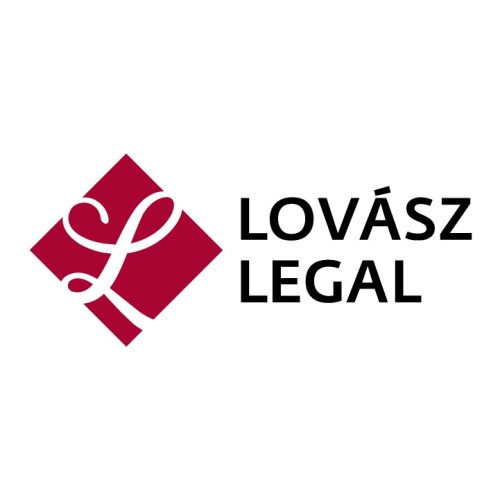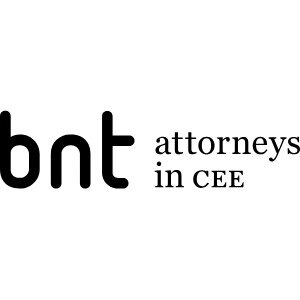Best Private Equity Lawyers in Slovakia
Share your needs with us, get contacted by law firms.
Free. Takes 2 min.
Or refine your search by selecting a city:
List of the best lawyers in Slovakia
About Private Equity Law in Slovakia
Private equity in Slovakia involves the investment of capital in private companies or enterprises, typically to achieve growth, restructure, or support management buyouts. The sector has matured significantly since Slovakia's transition to a market economy. Private equity deals often include venture capital investments, management buy-outs, growth capital, and acquisition financing. Slovak private equity law is influenced by both domestic legislation and European Union regulations, as Slovakia is an EU member. Investors and businesses often engage in complex legal arrangements to protect their interests and ensure compliance with the law.
Why You May Need a Lawyer
Engaging in private equity activities in Slovakia can involve numerous legal challenges and complexities. Here are common situations where legal assistance is crucial:
- Structuring private equity transactions to align with Slovak corporate and tax laws
- Drafting and negotiating investment agreements, shareholder agreements, and term sheets
- Performing legal due diligence on target companies
- Ensuring compliance with regulatory requirements, including competition and merger control laws
- Protecting intellectual property and managing employment liabilities
- Exiting investments, such as through sales, IPOs, or liquidation
- Resolving disputes between investors, founders, or other stakeholders
A qualified lawyer can guide you through these processes, reducing risk and helping you achieve your investment objectives.
Local Laws Overview
Private equity transactions in Slovakia are governed by several local and European regulations. Key legal aspects include:
- Corporate Law: The Slovak Commercial Code regulates the formation, management, and dissolution of companies. Most private equity investments occur in limited liability companies (s.r.o.) or joint stock companies (a.s.).
- Investment Structures: Investors may use Slovak or foreign investment vehicles. The choice of structure affects liability, taxation, and governance.
- Taxation: Tax implications are significant for both investors and target companies. Slovak corporate income tax, capital gains tax, and value-added tax (VAT) should be carefully considered.
- Employment Law: Investors often need to evaluate the labor relationships in target companies to avoid future disputes or liabilities.
- Regulatory Compliance: The Antimonopoly Office supervises compliance with competition laws, including mandatory notifications of certain mergers or acquisitions.
- Foreign Investment Regulation: Some sectors might be subject to restrictions or require additional regulatory clearance, particularly regarding critical infrastructure.
Understanding these laws is essential for reducing risks and ensuring successful private equity transactions.
Frequently Asked Questions
What is private equity in Slovakia?
Private equity in Slovakia refers to investments made directly into private companies, often involving active management and long-term growth strategies by the investors.
Can foreign investors participate in private equity deals in Slovakia?
Yes, foreign investors are welcome and can participate in private equity transactions, subject to certain sectoral restrictions and compliance with local and EU regulations.
Which company forms are most common for private equity investments?
Limited liability companies (spoločnosť s ručením obmedzeným or s.r.o.) and joint stock companies (akciová spoločnosť or a.s.) are the most commonly used company forms.
What are the main legal risks in private equity transactions?
Common legal risks include unclear ownership structures, unresolved shareholder disputes, non-compliance with tax laws, hidden liabilities, and regulatory hurdles.
How is due diligence conducted in Slovakia?
Due diligence typically covers corporate records, financial statements, legal compliance, employment matters, intellectual property, and environmental issues. Legal experts usually assist with thorough reviews.
Are there any industry restrictions for private equity investments?
Certain sectors, such as defense or critical infrastructure, may be subject to additional scrutiny or restrictions. Most sectors are open to private equity investment.
What tax considerations should investors be aware of?
Investors should consider corporate income tax, capital gains tax, dividend withholding taxes, and VAT. Tax structuring is often key to optimizing returns.
Is merger control relevant in private equity transactions?
Yes, transactions exceeding certain thresholds may require notification to the Antimonopoly Office of the Slovak Republic for merger control clearance.
How can an investor exit a private equity investment in Slovakia?
Common exit routes include trade sales, sales to other investors, initial public offerings (IPOs), or liquidations. The choice depends on market conditions and the original investment strategy.
Why is legal advice crucial in private equity?
Legal advice ensures compliance with complex laws, protects investor interests, manages risks, and increases the likelihood of successful outcomes for all parties involved.
Additional Resources
For more information or specific guidance, consider these helpful resources:
- Slovak Bar Association - Directory of licensed lawyers in Slovakia
- Antimonopoly Office of the Slovak Republic - Guidance on competition law and merger control
- Slovak Investment and Trade Development Agency (SARIO) - Support for foreign investors
- Ministry of Economy of the Slovak Republic - Information on investment regulations
- Slovak Venture Capital and Private Equity Association (SLOVCA) - Industry organisation and contacts
Next Steps
If you are considering private equity investments in Slovakia or need legal advice concerning existing investments, follow these steps:
- Assess your objectives and gather preliminary information about your planned transaction or investment
- Identify potential legal issues or uncertainties related to the target company, sector, or regulatory environment
- Contact a qualified Slovak lawyer or law firm experienced in private equity and corporate transactions
- Arrange a legal consultation to discuss your needs, ask questions, and understand the legal process
- Work with your lawyer to conduct due diligence, structure the transaction, and draft necessary documentation
- Stay informed about ongoing legal obligations and changes in Slovak or EU regulations
Taking these steps will help ensure your private equity activities in Slovakia are legally compliant and positioned for success.
Lawzana helps you find the best lawyers and law firms in Slovakia through a curated and pre-screened list of qualified legal professionals. Our platform offers rankings and detailed profiles of attorneys and law firms, allowing you to compare based on practice areas, including Private Equity, experience, and client feedback.
Each profile includes a description of the firm's areas of practice, client reviews, team members and partners, year of establishment, spoken languages, office locations, contact information, social media presence, and any published articles or resources. Most firms on our platform speak English and are experienced in both local and international legal matters.
Get a quote from top-rated law firms in Slovakia — quickly, securely, and without unnecessary hassle.
Disclaimer:
The information provided on this page is for general informational purposes only and does not constitute legal advice. While we strive to ensure the accuracy and relevance of the content, legal information may change over time, and interpretations of the law can vary. You should always consult with a qualified legal professional for advice specific to your situation.
We disclaim all liability for actions taken or not taken based on the content of this page. If you believe any information is incorrect or outdated, please contact us, and we will review and update it where appropriate.
Browse private equity law firms by city in Slovakia
Refine your search by selecting a city.

















